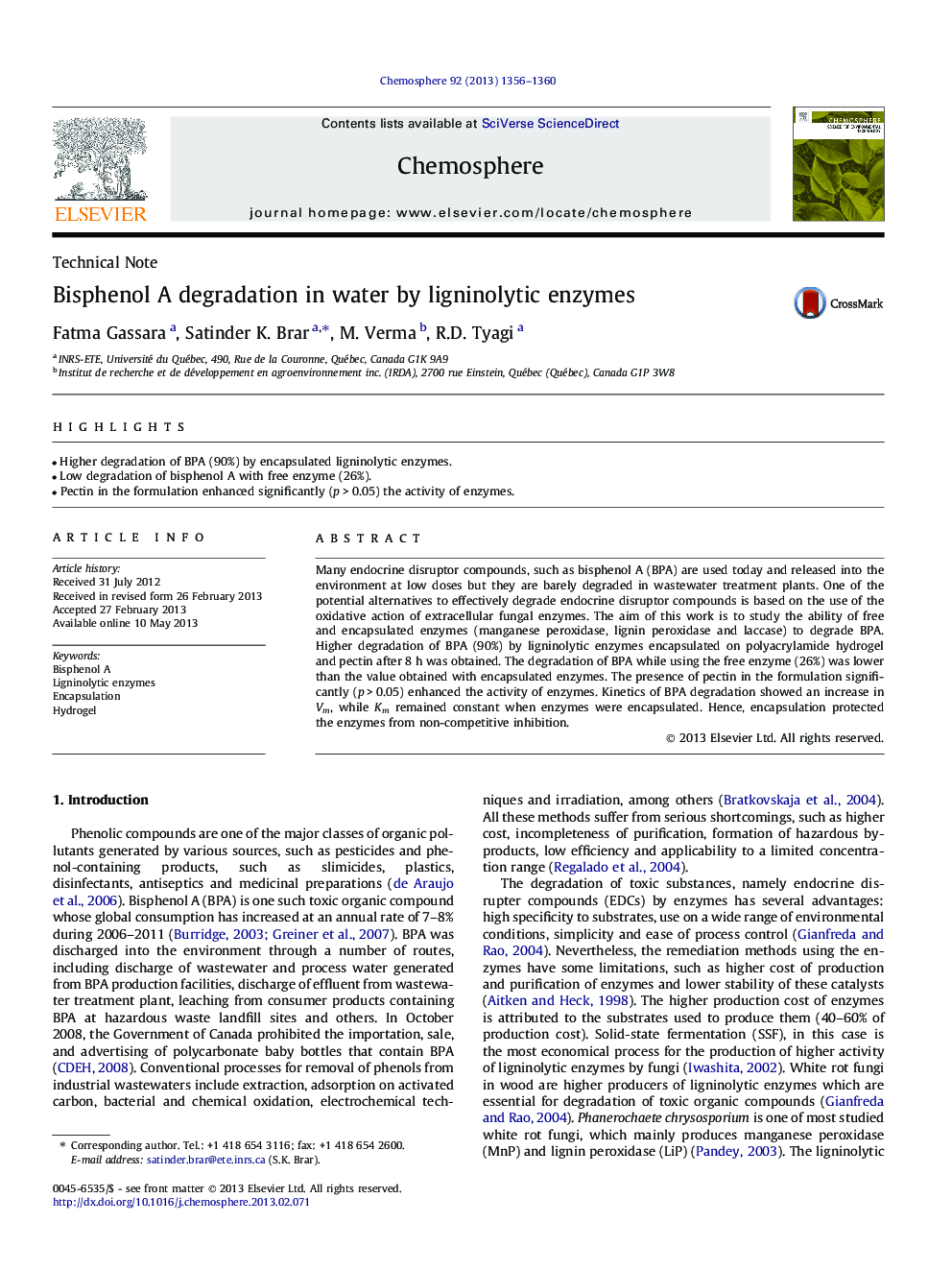| Article ID | Journal | Published Year | Pages | File Type |
|---|---|---|---|---|
| 4409142 | Chemosphere | 2013 | 5 Pages |
•Higher degradation of BPA (90%) by encapsulated ligninolytic enzymes.•Low degradation of bisphenol A with free enzyme (26%).•Pectin in the formulation enhanced significantly (p > 0.05) the activity of enzymes.
Many endocrine disruptor compounds, such as bisphenol A (BPA) are used today and released into the environment at low doses but they are barely degraded in wastewater treatment plants. One of the potential alternatives to effectively degrade endocrine disruptor compounds is based on the use of the oxidative action of extracellular fungal enzymes. The aim of this work is to study the ability of free and encapsulated enzymes (manganese peroxidase, lignin peroxidase and laccase) to degrade BPA. Higher degradation of BPA (90%) by ligninolytic enzymes encapsulated on polyacrylamide hydrogel and pectin after 8 h was obtained. The degradation of BPA while using the free enzyme (26%) was lower than the value obtained with encapsulated enzymes. The presence of pectin in the formulation significantly (p > 0.05) enhanced the activity of enzymes. Kinetics of BPA degradation showed an increase in Vm, while Km remained constant when enzymes were encapsulated. Hence, encapsulation protected the enzymes from non-competitive inhibition.
